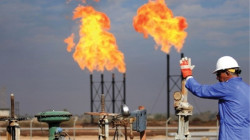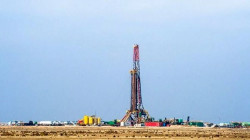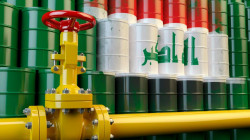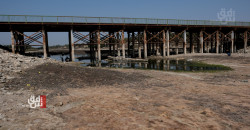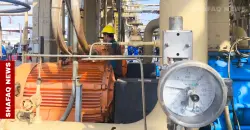Iraq's oil ambitions vs. UNESCO heritage: The Hawizeh Marsh conflict
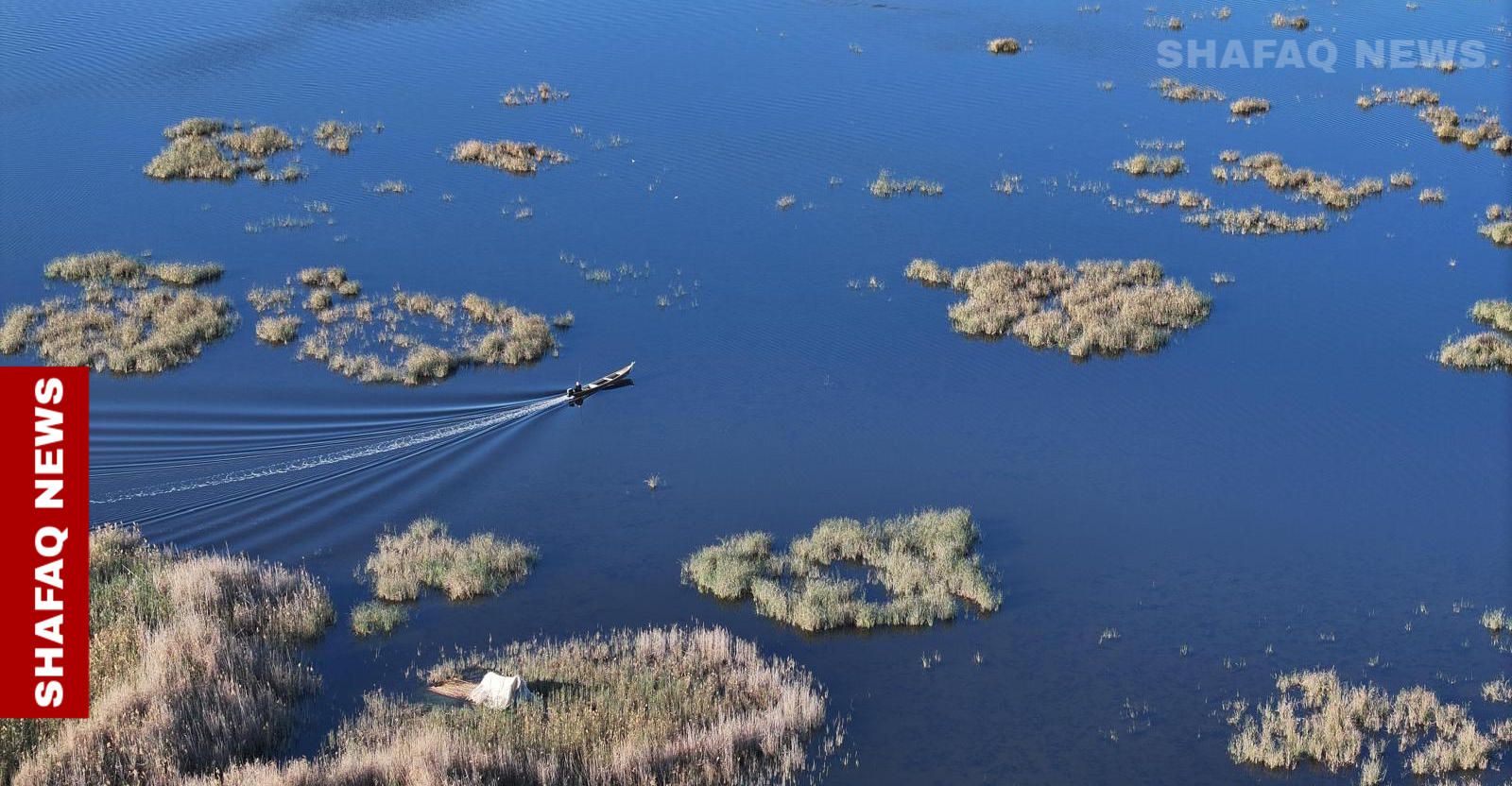
Shafaq News/ Oil exploration in the Hawizeh Marsh in Iraq’s Maysan province has ignited fierce debate between authorities, environmental activists, and residents. While officials present the project as a way to boost Iraq’s oil revenues, critics warn it threatens the region’s biodiversity, public health, and Iraq’s international commitments.
In 2016, UNESCO designated the marshes as a World Heritage Site, recognizing their ecological and cultural importance. The dispute over oil extraction in such a sensitive area raises fundamental questions about Iraq’s development strategy and environmental stewardship.
Tapping Oil, Draining Life
At the heart of the dispute is Iraq’s reliance on oil as its primary economic driver. The country depends on petroleum exports for over 90% of its state revenue. In February 2023, the Iraqi government signed contracts under its fifth licensing round, granting exploration rights to six oil fields, including the 17-kilometer-long, 8-kilometer-wide Hawizeh field. The contract was awarded to China’s Geo-Jade Petroleum ad was framed by the government as a necessary step to bolster Iraq’s economic growth by tapping into untapped oil reserves.
The Maysan region, where the Hawizeh Marsh is located, contributes significantly to Iraq’s national budget, with around $14 billion annually in oil revenues. However, Maysan receives only $500 million in return, according to local lawmaker Jasim Al-Mousawi.
Al-Mousawi has voiced his concern that the economic benefits from oil exploration will disproportionately favor the central government, leaving local communities to bear the brunt of the environmental and social costs.
“The marshes are the backbone of the local economy,” Al-Mousawi explained, pointing to the livelihoods of families dependent on fishing, water buffalo herding, and the harvesting of reeds and papyrus. He has proposed alternatives to oil exploration, such as sustainable tourism and eco-friendly agriculture that would allow for both economic growth and the preservation of the region’s unique ecosystem. Yet, these proposals have largely been ignored.
A Silent Exodus
Beyond the financial implications, the local population faces direct consequences from the oil exploration project. The marshes, which once covered 3,500 square kilometers, have already suffered severe environmental degradation due to upstream dam construction in Iran and Turkiye, coupled with rising temperatures linked to climate change.
Water levels in the marshlands have dropped by more than 65% since 2019, leading to a steep decline in fish populations and a 40% decrease in annual fishing yields, according to the Iraqi Fishermen’s Association.
Local activists, like Murtada Al-Janoubi, believe that the government's actions have accelerated the marshes' decline. "The notion that the marshes are receiving sufficient water is false," Al-Janoubi asserts, claiming that authorities deliberately diverted water from the Hawizeh River in late 2021, worsening the ecological crisis.
The situation has forced many families to abandon their homes. "As soon as drilling operations began, waves of residents started leaving. Only a handful of families remain," Al-Janoubi warns.
Local herders have also faced significant losses, with buffalo populations decreasing by 35% in the last five years, further deepening the economic downturn in rural communities. A 2022 World Bank report on Iraq’s water crisis warns that continued mismanagement of marshlands could displace at least 40,000 people by 2030, with severe repercussions for regional stability.
A Poisoned Paradise
The environmental impact of the Hawizeh field project has sparked significant concern among experts. The degradation of Iraq’s wetlands not only threatens local biodiversity but also jeopardizes the country's efforts to combat climate change.
As the marshlands shrink, desertification is expected to increase by 30% over the next decade. The loss of these vital ecosystems could also release an estimated 12 million metric tons of CO2 annually, worsening the region’s climate crisis.
Experts warn that drilling operations in such an ecologically sensitive area could introduce hazardous substances, further polluting the air and water. While Geo-Jade Petroleum has not yet started full-scale drilling, the risks are already becoming clear. Amer Al-Bayati, director of Maysan’s Environmental Office, highlights the dangers, "Oil exploration releases hazardous substances, increases pollution, and disrupts the fragile ecosystem."
The impact on biodiversity would also have global repercussions. The Hawizeh Marsh is home to endangered species like the Basra Reed Warbler and the Persian Fallow Deer, both of which rely on the wetlands to survive. If the marshes are further harmed, Iraq could lose these species and the ecotourism opportunities they offer—an important alternative to oil extraction that could support sustainable economic growth.
On the other hand, the Ministry of Water Resources maintains that the exploration project will benefit Iraq’s economy by creating jobs and developing infrastructure. Spokesperson Khalid Al-Shammari explains that "exploration areas are isolated with embankments to prevent contamination of the marsh waters" and assures that environmental regulations will be followed, with mitigation measures in place to reduce ecological damage.
Yet, Iraq’s track record in oil extraction raises doubts about these promises. A 2021 study by the Ministry of Health revealed that pollution from oil operations in southern Iraq has caused a 20% rise in respiratory diseases among local populations. This only adds to the growing concerns about the public health risks posed by expanding oil exploration into such ecologically delicate
regions.
A Broken Promise
The Hawizeh Marsh is part of a vital transboundary wetland system that extends into Iran, where it is known as the Hoor Al-Azim Marsh. Recognizing its ecological and historical significance, UNESCO designated Iraq’s marshlands as a World Heritage Site in 2016.
Yet, the ongoing oil exploration project threatens to undermine these international commitments. Critics argue that the project directly contradicts Iraq’s obligations under agreements like the Ramsar Convention on Wetlands of International Importance, which aims to protect critical wetland ecosystems worldwide.
Activists are particularly concerned about the environmental impact of introducing heavy machinery into the marshes. They warn that such operations could violate these conventions, further jeopardizing Iraq’s responsibility to preserve its natural heritage.
Local activist Mustafa Hashem underscores this point, stating, "These oil operations undermine efforts to preserve the marshlands and their communities under the pretext of economic growth."
Legal experts caution that Iraq could face significant penalties if it fails to uphold these agreements. Environmental advocacy groups have called on UNESCO to intervene, urging the imposition of restrictions on oil drilling in these protected areas. The stakes are high, as failure to meet conservation obligations could result in the loss of World Heritage status—a blow that would likely hinder Iraq's ability to secure international funding for essential climate adaptation projects.
Moreover, the controversy over the Hawizeh Marsh is not solely an internal matter for Iraq. The marsh is shared with Iran, which could raise diplomatic concerns if environmental damage spills across the border into its territory.

